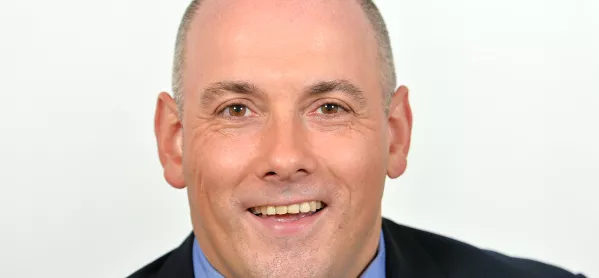- Home
- Put ‘army’ of retired teachers into schools, says MP
Put ‘army’ of retired teachers into schools, says MP

A senior Conservative MP is calling for a volunteer “army” consisting of retired teachers and university graduates to be set up to support disadvantaged pupils in schools when the coronavirus lockdown ends.
Robert Halfon, chairman of the Commons Education Select Committee, said the volunteers would work in schools when they reopened to help disadvantaged pupils, who had been unable to continue their education at home, to catch up.
He told Tes the scheme should be similar to the volunteer responders programme set up to help the NHS cope during the coronavirus pandemic, but with the focus on schools and education.
Coronavirus: What do teachers need to stay safe in school?
News: ‘Help poor pupils with a catch-up premium’
Background: Class divide in online learning
Related: The attainment gap was yawning long before Covid-19
Mr Halfon - who has also suggested that a catch-up premium be introduced to help vulnerable and disadvantaged pupils - would not to be drawn on how many volunteers he hoped such a scheme might recruit.
But he said that he envisaged they would be drawn from three spheres: retired teachers; up to 200,000 university graduates from the class of 2020; and third-sector organisations already working to support disadvantaged pupils.
Coronavirus: Could retired teachers help vulnerable pupils?
Under the plan - which he said he would be putting to education secretary Gavin Williamson when he appears before Mr Halfon’s committee on Wednesday - volunteers would be registered, given Disclosure and Barring Service checks and assigned to their local school.
When asked if it would be a good idea to have retired teachers working in schools, given that older people are more at risk of dying if they contract coronavirus, Mr Halfon cited the example of the retired doctors and nurses who had successfully returned to support the NHS.
He told Tes: “There is a will out there to help the vulnerable - there is a passion out there to help the vulnerable. That has been shown by what has happened with the NHS.”
However, Mary Bousted, joint general secretary of the NEU teaching union, rubbished the scheme, saying she could not see how an army of volunteers could be deployed in schools which - in all likelihood - would be practising social distancing when they reopened.
Mr Halfon said: “What I’m proposing is we have a scheme like the NHS national volunteering scheme supported by the Royal Voluntary Service.
“I’m really worried that the left behind pupils get left further behind because they aren’t able to learn during lockdown. So I’ve been proposing a catch-up premium and also a nationwide army of volunteers - including graduates and retired teachers - going in and helping the schools.
“The research shows if you have half an hour of mentoring three times a week you can advance by about five months.”
Millions of children will have been out of school for nearly two months by 7 May, when the current phase of the lockdown ends.
There are widespread concerns about the impact that the time out of education will have, especially for the country’s most disadvantaged youngsters, who might not have quiet places to work or access to devices and the internet.
Earlier this month a charity called for a voucher scheme to fund “high-quality online tuition” for disadvantaged pupils, after a poll revealed the impact of inequality on home learning.
Dr Bousted said that while she was pleased that Mr Halfon, a former minister, was “expressing concern about disadvantaged children” she said that he had been part of a government that had seen child poverty “rise exponentially”
“If there were fewer disadvantaged children we would be less concerned about the attainment gap,” she said.
“He [was] a member of the government that has introduced policy - like universal credit, the five-week wait and the two child limit for benefits - that has dramatically increased child poverty and he needs to take responsibility for that whilst he worries about the attainment gap. We know that 40 per cent of the attainment gap is created before children start school.”
Dr Bousted added: “How are we going to manage an army of volunteers and social distancing? It seems to me the two are fairly incompatible - and that’s before you start thinking about background checks and safeguarding.”
Register with Tes and you can read two free articles every month plus you'll have access to our range of award-winning newsletters.
Keep reading with our special offer!
You’ve reached your limit of free articles this month.
- Unlimited access to all Tes magazine content
- Save your favourite articles and gift them to your colleagues
- Exclusive subscriber-only stories
- Over 200,000 archived articles
- Unlimited access to all Tes magazine content
- Save your favourite articles and gift them to your colleagues
- Exclusive subscriber-only stories
- Over 200,000 archived articles



